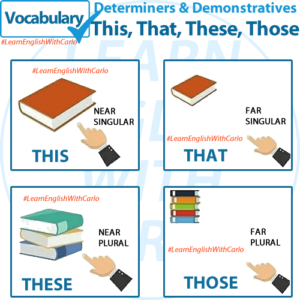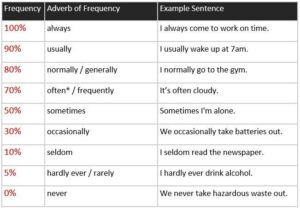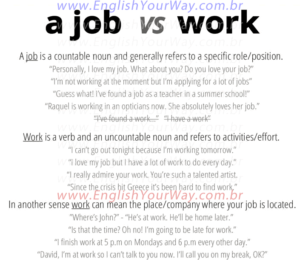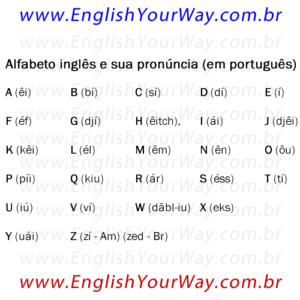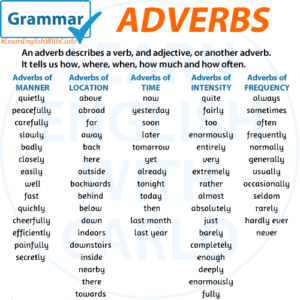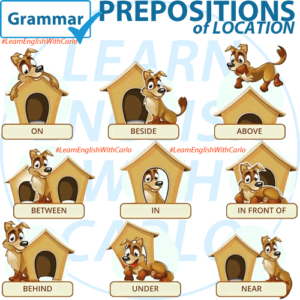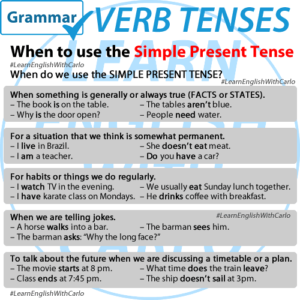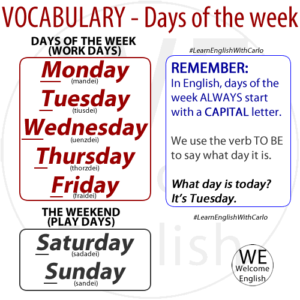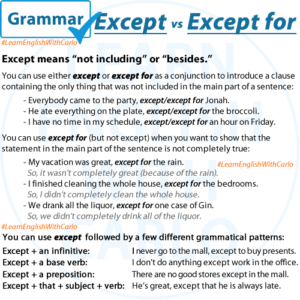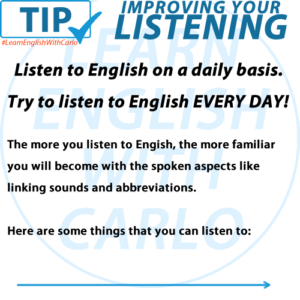Demonstrative Pronouns Visual Aid Quick Tips This simple framework can help your students understand and correctly use these pronouns.
Category: INSTAGRAM
Images I've posted to Instagram
Permanent link to this article: https://englishyourway.com.br/grammar-this-that-these-those/
May 26
Adverbs of Frequency
Have you ever wondered how to tell someone how often you do something? There are special words in English that help us do just that. They’re called adverbs of frequency, and they’re pretty cool! Let’s learn more about them together. What are Adverbs of Frequency? Adverbs of frequency are words that tell us how often …
Permanent link to this article: https://englishyourway.com.br/adverbs-of-frequency/
May 22
A Job vs. Work
Permanent link to this article: https://englishyourway.com.br/a-job-vs-work/
May 21
The Alphabet – Phonetically
Today, we’re going to learn how to pronounce each letter phonetically. This will help you read, write, and speak English more confidently. Let’s start by going through the alphabet together. For example, the letter ‘A’ is pronounced ‘ei,’ ‘B’ is pronounced ‘bi,’ and ‘C’ is pronounced ‘si.’ Alphabet and Numbers A (ei), B (bi), C …
Permanent link to this article: https://englishyourway.com.br/the-alphabet-phonetically/
May 15
ADVERBS
ADVERBSAn adverb describes a verb, an adjective or another adverb. Look at this table to see all the things an adverb can tell us. Adverbs are essential parts of speech that modify verbs, adjectives, or other adverbs, giving us more information about how, where, when, how much, or how often something happens. Let’s explore the …
Permanent link to this article: https://englishyourway.com.br/adverbs/
May 06
Prepositions of Location (with a dog)
Prepositions of location tell us where one thing is in relation to another thing. REMEMBER: The book is ON the table. In this sentence, the preposition ON tells us the relationship between the book and the table. If we change the preposition, we change the relationship. Let’s review some common prepositions of location:
Permanent link to this article: https://englishyourway.com.br/prepositions-of-location-with-a-dog/
Feb 05
GRAMMAR – Simple Present Tense
When do we use the SIMPLE PRESENT TENSE? When something is generally or always true (FACTS or STATES). The book is on the table.The tables aren’t blue.Why is the door open?People need water. For a situation that we think is somewhat permanent.I live in Brazil.She doesn’t eat meat.I am a teacher.Do you have a car? …
Permanent link to this article: https://englishyourway.com.br/grammar-simple-present-tense/
Jan 17
What day is today?
Permanent link to this article: https://englishyourway.com.br/what-day-is-today/
Jan 12
GRAMMAR – EXCEPT vs. EXCEPT FOR
EXCEPT means “not including” or “besides.” You can use either EXCEPT or EXCEPT FOR as a conjunction to introduce a clause containing the only thing that was not included in the main part of a sentence:Everybody came to the party, EXCEPT/EXCEPT FOR Jonah.He ate everything on the plate, EXCEPT/EXCEPT FOR the broccoli.I have no time …
Permanent link to this article: https://englishyourway.com.br/grammar-except-vs-except-for/
Dec 29
Improve Your Listening
Here are some ideas that you can use every day that might help you to improve your English. Watch movies, series, and news in English (with subtitles if necessary). Listen to music in English and try to understand the lyrics. Watch TED Talks or other speeches in English. Record yourself and listen to the recording. …
Permanent link to this article: https://englishyourway.com.br/improve-your-listening/

